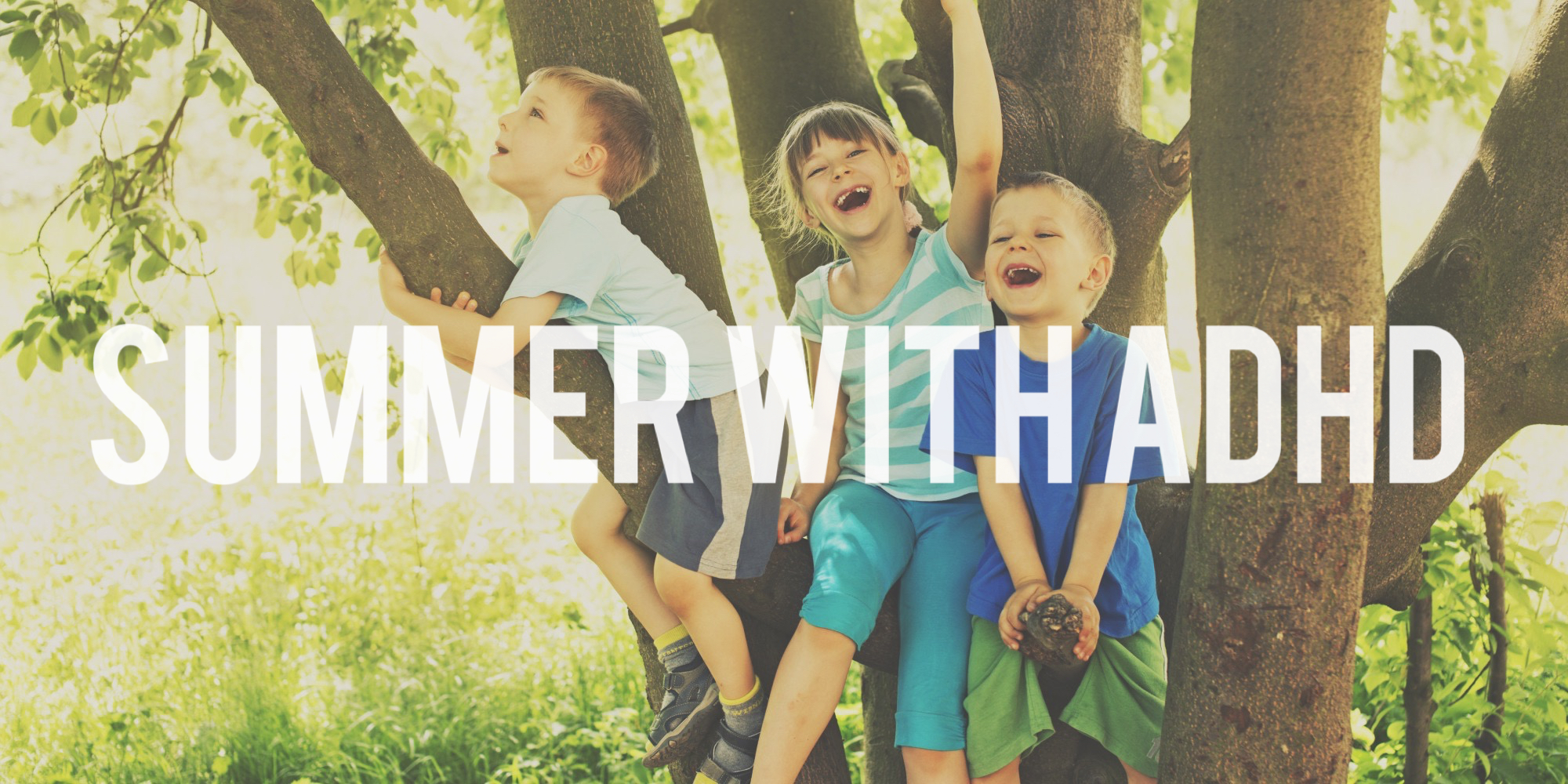7 Strategies for Supporting Your Children with ADHD Over the Summer Break
With the school year coming to a close, many parents start to think about (read: cringe in fear) how summer will look for their children. School is organized, structured, and clear in its expectations, but the summer is far from it. We all have the images of summer laziness, spending all day outside, and staying up late. However, when parents of children with ADHD think about summer, it’s not that easy. Here are seven strategies to consider as you prepare for your summer.
1. What are Your Goals for the Summer?
Some people start their planning with activities, trips, and projects, but the better place to start is to figure out what the goals are for your family for the summer. Do you want a “stress-free summer?” Do you want your kids to learn something new? Or do you want your kids to develop relationships with their cousins and other family members? When you think through the goals for your summer, you can then work toward all the activities, daily routines, and camping trips with a greater awareness of how it will support your goals.
2. Lower Your Expectations
It’s so easy to place a lot of expectations on summer. Making sure the kids “have fun” can either be a small reminder or it can become an overcoming sense of anxiety on you. (That anxiety you feel directly affects your kids.) So, maybe the kids don’t go to every sleepover, and maybe they don’t read the 5 required books from the school’s summer reading list. But if that results in a more peaceful time together, where the pressure is off, it’s worth it. Take some time to outline your expectations from bedtimes to family trips, and then find out where you might have unrealistic or unhelpful expectations. Then lower them and take that extra space to enjoy your kid’s summer.
3. Have a Morning and Bedtime Routine–Every day
If you read our blog, Five Sleep Solutions for Children with ADHD, then you know children do best when they go to bed at the same time, the say way, every single night. This is still the case when school is out and the temptations for late nights and open-ended sleep schedules are at the strongest. We recommend that if parents want to relax bedtimes, be consistent. If your children have to brush their teeth and turn off the screens an hour before bedtime, try to maintain that routine even if the bedtime is pushed back a couple hours.
In the mornings, obviously your children are not getting ready to go to school. For children with ADHD and similar challenges, having a morning routine can be a great way to keep the day structured. “Out of bed by 9am, breakfast at the table…”
4. Limit Down Time
Boredom and ADHD do not mix well. There are so many activities throughout the summer hosted by libraries, parks, gyms, and churches. Most of them are free, in the neighborhood, and take up at least a half-day. These are great opportunities that don’t require a lot of planning and preparation on your part. Also, think about scheduling weekly play dates or afternoon trips to the movies. The more the day is filled with structure and engaging activities, the better your child will interact with others, and the better he will sleep at night.
5. Prioritize Down Time
The tendency to fill a child’s summer with activity and school work for next year can easily overwhelm a child. While it is helpful to schedule some time to work toward improving weak areas like reading, handwriting, and math, there needs to be clearly defined spaces throughout the day where the pressure is off. Take the morning for education and improving school skills, and then give the afternoon for whatever they may be interested in. It may also be helpful to set aside a “down hour,” where the screens are off, the workbooks are closed, and there is no expectation except to rest.
6. Summer Jobs and Daily Chores
One of the best reinforcers of positive self esteem is when your child is able to do a job well and be praised for it. Perhaps, for older children and teens, they can walk the dogs of a neighbor, mow lawns, or work for a family friend. Younger children can help with chores like folding laundry or watering the garden. Completed tasks, with positive feedback, and cash in their pockets–that feels great for everyone, including your children.
7. Be Mindful of Overstimulation
County fairs, concerts, fireworks, crowds, amusement parks, and long hot days seem to be part of the cultural identity of our summers. They are also a part of your child’s overstimulation of their sensory processing. All the information and noises and smells can come into your child’s mind all at once and create a “traffic jam” of her senses. Children with ADHD need downtime, routine, boundaries, and clear expectations. So, when you look at your summer calendar, make sure you keep all the “overstimuli” to a minimum. Everyone will do better if they do a little less.
We Are Here To Help
Our clinicians specialize in treatment of ADHD in children at our offices in Fort Collins. We provide counseling services for ongoing support, and we offer psychological evaluations that can provide clarity for children who may have ADHD. Feel free to give us a call or send us an email to learn how counseling and psychological evaluations could be helpful or to schedule an appointment. You can reach us at (970) 889-8204 or contact@coloradocac.com.

